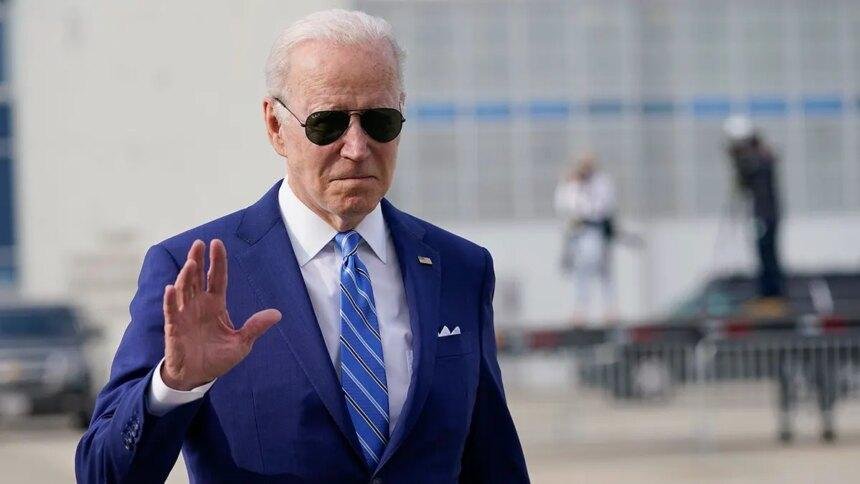Biden’s 2015 Request to Suppress Intelligence Report Raises Questions About Political Influence
In a significant revelation, declassified documents have surfaced indicating that then-Vice President Joe Biden expressed a strong preference for the CIA not to disseminate an intelligence report concerning Ukrainian officials‘ concerns about his family’s business dealings in the country. This incident, which occurred in 2015, has reignited discussions about the intersection of politics and intelligence, particularly regarding the Biden family’s alleged ties to corruption.
The Context of the Request
The intelligence report in question was part of a broader analysis of U.S.-Ukraine relations during a tumultuous period marked by political upheaval in Ukraine and ongoing tensions with Russia. At the time, Biden was not only serving as Vice President under President Barack Obama but was also the administration’s point person for Ukraine. The report revealed that Ukrainian officials viewed the Biden family’s business connections as indicative of a double standard in U.S. policy towards corruption.
According to CIA Director John Ratcliffe, who declassified the documents, the suppression of this intelligence is a clear example of the politicization of intelligence. The documents were uncovered during a CIA review of historical records, highlighting the agency’s ongoing efforts to ensure transparency and accountability.
Details of the Declassified Documents
The declassified email, dated February 10, 2016, indicated that Biden had communicated his preference for the report to remain undistributed. The email, which was marked as “SECRET,” stated, “Good morning, I just spoke with VP/NSA and he would strongly prefer the report not/not be disseminated.” This request was reportedly granted, and the intelligence was never shared outside the CIA.
The report itself, created in 2016, detailed reactions from Ukrainian officials following Biden’s visit to Kiev in December 2015. These officials expressed disappointment that Biden’s visit did not address substantive issues, such as personnel matters within the Ukrainian government, but instead focused on a generic public speech about corruption.
Implications of the Findings
The implications of Biden’s request are profound, particularly in light of the ongoing scrutiny of his family’s business dealings in Ukraine. The intelligence report noted that Ukrainian officials were aware of the media scrutiny surrounding Biden’s family and perceived it as evidence of a double standard in U.S. governance regarding corruption.
This situation is reminiscent of past political controversies involving intelligence and foreign relations. For instance, during the Trump administration, former President Donald Trump was impeached for pressuring Ukraine to investigate the Biden family, specifically Hunter Biden’s role with Burisma Holdings, a Ukrainian natural gas company. This incident underscored the complexities of U.S.-Ukraine relations and the potential for political motivations to influence foreign policy.
The Historical Context of U.S.-Ukraine Relations
U.S.-Ukraine relations have been historically complex, particularly following the 2014 annexation of Crimea by Russia. The Obama administration, with Biden at the helm of Ukraine policy, sought to support Ukraine’s sovereignty and promote anti-corruption measures. However, the intertwining of personal and political interests has raised questions about the integrity of U.S. foreign policy.
Biden’s speech in Ukraine on December 9, 2015, emphasized the need for reform in the country’s energy sector and the importance of combating corruption. Ironically, this call for transparency and accountability stands in stark contrast to the allegations surrounding his family’s business dealings.
The Broader Political Landscape
The recent revelations come at a time when the House of Representatives has launched an impeachment inquiry against President Biden, alleging that he engaged in “impeachable conduct” and “defrauded the United States to enrich his family.” This inquiry has reignited debates about the ethical implications of political families engaging in business abroad, particularly in countries where the U.S. has significant interests.
The politicization of intelligence is not a new phenomenon; it has been a recurring theme throughout U.S. history. The CIA’s role in shaping foreign policy and its interactions with political figures have often been scrutinized, raising concerns about the integrity of intelligence assessments.
Conclusion
The declassified documents revealing Biden’s request to suppress intelligence regarding his family’s business ties in Ukraine add a new layer to the ongoing discourse about the intersection of politics and intelligence. As the House of Representatives continues its impeachment inquiry, the implications of these findings will likely reverberate through the political landscape, prompting further examination of the ethical boundaries that govern political conduct and foreign relations. The case serves as a reminder of the delicate balance between national interests and personal affiliations, a balance that remains as contentious today as it has ever been.











